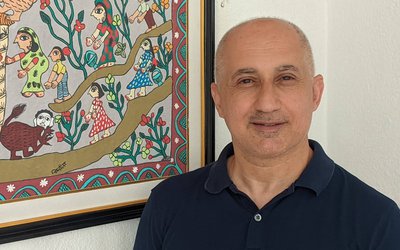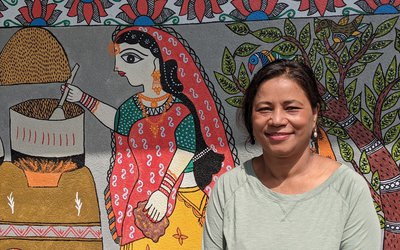
Professor Tatsuro Fujikura, Ph.D, teaches anthropology at the Graduate School of Asian and African Area Studies at Kyoto University. Fujikura, who has also spent some time in Nepal, recently visited Kathmandu to address the association of Nepalese returnees from Japanese universities. On the occasion, he spoke to New Spotlight on various development issues.
How do you look at the development process and transformation taking place in Nepal in the current transitional period?
It is very uncertain and I cannot say where it is going. However, it is a very good opportunity to analyze and find out what has gone wrong. This is the time to listen to the demands of various groups and people on development. Given the present discourses, I can say that Nepal will come out with the right way.
Do you believe that Nepal's development practices completely failed to address the problems as you cited two prominent people Nanda Lal Shrestha and Dr. Devendra Raj Pandey in your presentation?
I think their voices are very much valid and their arguments are very strong. However, we cannot stop the development process. Taking their valid points, Nepal needs to move forward.
You have spent some time in the mid-western region with the Tharu community. How do you view the transformation of that community?
Tharus of Nepal are making very good efforts and they are the exemplary people who have made big sacrifices in the current transition. Tharus are the models for new Nepal.
How do you view Nepal's current economic development? Do you believe that Nepal will graduate from a least developed country to the ranks of developing country by 2022?
Nepal has been making a good progress. However, this is not a realistic timeframe as Nepal has been facing many problems needing solution. As many people are left out of the mainstream development process, Nepal needs to involve them in the mainstream.
How do you look at your visit this time?
I am here for just one day. What I see is that the roads are widened. Despite so many problems and prolonged political transition, the country is doing good. I am optimistic about the future of Nepal and there is nothing to be desperate. This is a great time for Nepal.
How do you view the prolonged political transition?
Given the quality of Nepalese people, they will overcome the present political crisis and move to further their economic development with an inclusive political system.
- TANAHU HYDROPOWER PROEJCT: A Significant Achievement
- Apr 15, 2024
- AMBASSADOR HANAN GODAR: Sharing Pain With A Nepali Family
- Mar 30, 2024
- VISIT OF KfW AND EIB TO NEPAL : Mission Matters
- Mar 25, 2024
- NEPAL BRITAIN SOCIETY: Pratima Pande's Leadership
- Mar 24, 2024
- NEPAL ARMY DAY: Time To Recall Glory
- Mar 15, 2024
















